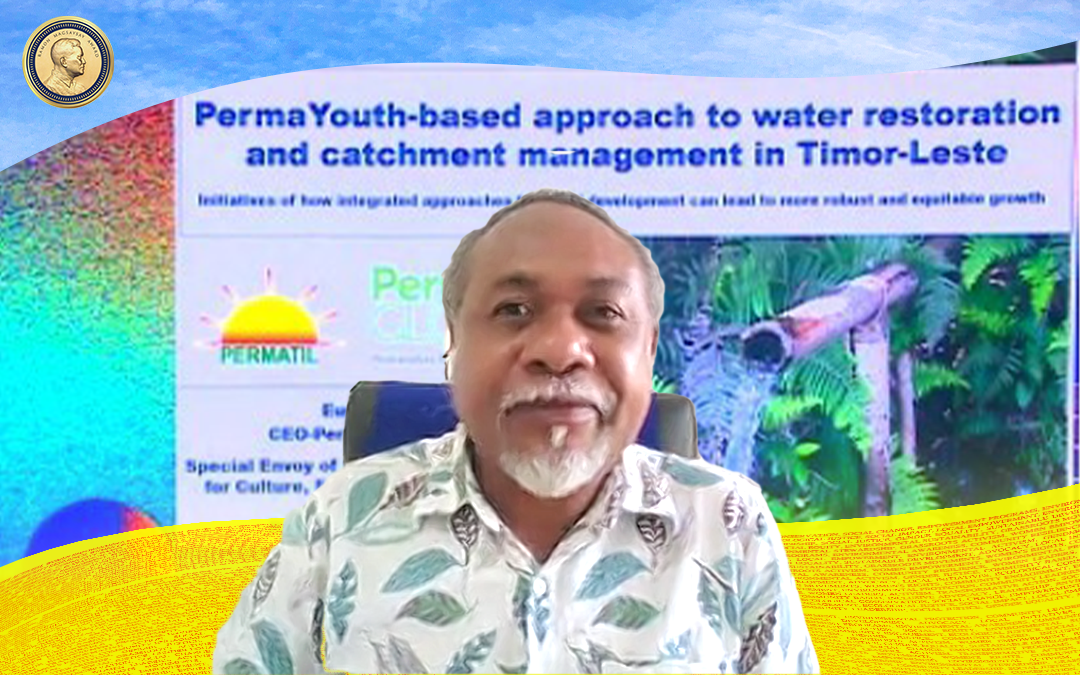Eugenio Lemos, 2023 Ramon Magsaysay Awardee from Timor-Leste, founder and CEO of Permatil in Timor-Leste, discussed how integrated social development approaches can drive robust and equitable growth, focusing on Permaculture Timor Lorosa’e (Permatil Timor-Leste) impact on local communities, culture, and the environment at the 22nd MAP International CEO Conference, organized by the Management Association of the Philippines (MAP) at the Grand Hyatt Hotel, Bonifacio Global City, Taguig, Philippines.
Eugenio Lemos was invited by the MAP, an organization committed to management excellence, which connects top practitioners and advocates for good governance, global competitiveness, inclusive growth, climate change, and sustainability, to speak at the 22nd MAP International CEO Conference. With the theme “Business in Five Movements: Wisdom, Passion, and Inspiration Across Multiple Generations,” Lemos’s mission to advance food sovereignty by leveraging Indigenous wisdom empowers participants to create holistic strategies for social development, paving the way for sustainable progress.
Lemos, through Permatil, has dedicated his life to empowering rural communities to achieve self-sufficiency through sustainable agriculture. His innovative approach to food security has become a model for developing nations, where access to resources and agricultural knowledge is often limited. By introducing permaculture principles to marginalized communities, Lemos teaches them how to cultivate food sustainably and regeneratively.
During his address at the 22nd MAP International CEO Conference, Lemos shared his journey and the core principles that have guided his work. He emphasized the importance of community-led initiatives in achieving lasting social change. “We have different sectors—government, civil society, and the community—working together to address the issue of climate change that we are facing today. What we need is cooperation and collaboration among all sectors. We cannot work alone because we won’t solve the problem by ourselves, but together we can.” Lemos said.
“One of the permaculture principles emphasizes cooperation, not competition,” he added.
During the session on “Social Development at The Front and Center of Growth and Inclusive Prosperity,” Lemos advocated for a multi-generational approach to tackling global challenges. Drawing from his experiences, Lemos shared how in Timor-Leste, traditional agricultural knowledge passed down by older generations has been integrated with modern techniques by younger people, resulting in a sustainable and prosperous way of life.
“Each generation has something valuable to contribute,” Lemos stated. “I believe it is our responsibility to support and guide them, helping them develop innovative ideas that can contribute to their local communities as well as make a global impact.”
Lemos’ message was clear: the future of business and society depends on the wisdom of the past, the passion of the present, and the inspiration we can offer to future generations.

